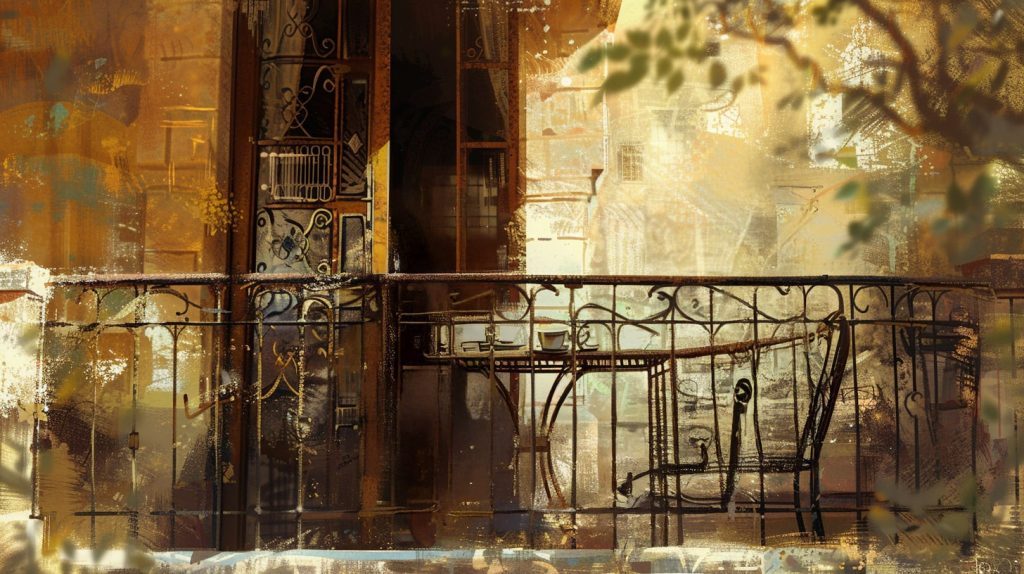The great little Savta Lily
03/01/2022
Most of all,
I remember the mornings.
Each morning Savta would open all the windows,
(winter mornings not excluded)
letting the duvet breathe the Jerusalem air.
A small radio is loudly playing classical music while cold air floats through the windows mingling with the concertos,
almost reaching the heavy quilted comforter I’m tucked under.
Saba is already off to work,
Savta, who had been strictly forbidden from all house chores growing up,
would clean and dust, cook or go grocery shopping for plain dark bread.
The Gaza street house:
Two verandas,
the coughing sounds of old buses moaning up the street,
classical music humming through the little apartment walls.
Hidden treasures waited in the armoire drawers:
loads and loads of cards, meticulously divided into decks, while their orphaned siblings stuck together on the other side.
We would sort them for hours or just play one of the many Solitaire games Savta knew.
Strange, spiral, huge pencils, brought home from Saba’s factory, and in the background the constant hums and clicks of the Cuckoo clock which was entrusted solely to grandpa’s gentle care.
A humble kitchen,
a tiny table where Grandpa’s bread slicer would slice the loaf into thin, perfect pieces covering them with jam or margarine.
Zauerkraut cooking on the stove,
cold fruit compote waiting in the fridge,
Sugar and cinnamon wrapping the butter covered knedlíky,
Thin pale noodles leisuring in a finely mashed green lentil soup,
Savta flavored sweet&sour grated carrot salad
And Savta,
always trying to get us to eat more,
grow more,
get a little taller,
study everything she could not,
become everything she had to give up.
Her first years here left deep marks,
after growing up in a house fully staffed with nannies, servants and cooks,
she had to start from scratch,
learning how to survive,
leaving everything behind after losing all her belongings,
and survive she did.
Survived the Holocaust taking her parents and aunties,
survived the war borrowing her husband,
leaving her a single mom to a toddler,
survived the lean years to come, while the new formed country was struggling to grow,
survived hand washing the laundry as the water boiled on the old kerosene stove,
the cooking,
the cleaning,
her husband’s family,
which always regarded her with caution reserved for city folks.
She survived when the only choice left to the accomplished young lady she had been, was becoming a maid in a British household,
survived the Kurdish neighborhood where she did not belong,
survived not knowing the language,
survived the heat and the dust,
survived the new technologies exponentially exploding during her lifetime.
The little princess,
who grew up in the shadow of an inaccessible mother and two brothers,
grew up in a world of customs that suddenly vanished,
destroyed,
left it all behind and journeyed alone to a new land,
abandoning everything,
knowing deep in her heart she would never see them again,
traveling toward the unknown, alone.
The great little Savta Lily:
A selective listening and a piano in the living room,
absolute lack of tact wrapped in European manners,
sitting together on the porch she inquires:
“Do you have a help?”
“I do, Savta”
“a good one?”
“yes, Savta”
“and your husband, he helps?”
“yes, Savta, he does.”
“That’s good”, she nods affirmatively, “he’s a good fella”,
“I never had any help”, she reminds me (or maybe herself) every time,
then, as if checking an item off a todo list, she moves on:
We would sail by her parents’ urban mansion,
watching her brothers, (who, being young men,
were allowed all sorts of fun which was, of course, prevented from young ladies)
Watching the aunties spending weeks and months visiting,
taking bike rides and walks on the river bank,
ice skating in the winter on a frozen lake,
Waltz dancing
“Do you know how to Waltz?”
“I don’t, Savta”
“What, they didn’t give you lessons? they gave me lessons”
and back she goes to:
the balls,
the suitors,
the hardware store owned by her parents,
the rare field trips with her mother and a younger aunt.
They spoke German at home,
the kids were taught Czech at school,
here, she had to learn The Hebrew,
which she always spoke with a heavy accent adding German and Czech proverbs whenever possible.
Due to said accent,
she was the only one allowed to distort our Israeli names,
which became
Galeet, Michal and Oorieet.
The three of us,
the granddaughters of a new flourishing generation,
not entirely understood or entirely misunderstood
totally unaccommodating,
independent,
opinionated,
quite not ladylike
wearing shorts (um Gottes Willen, aren’t you freezing?)
Working unconventional jobs,
studying all sorts of incomprehensible studies,
holding unacceptable political opinions,
we managed,
despite everything,
to offer her some joy.

I remember the stories,
the relentless arguments,
the hidden and not so hidden criticism,
I remember her sheepish laughter whenever she felt awkward,
the endless worries:
of us catching a cold,
catching a disease,
catching the wrong husband,
catching the wrong job,
working too hard, never resting.
I remember it all,
but most of all,
I remember the mornings.
I remember it all,
but most of all,
I remember the mornings.